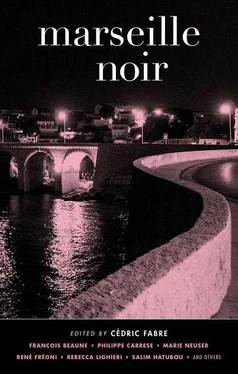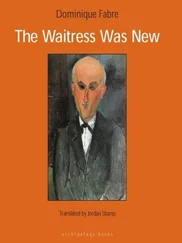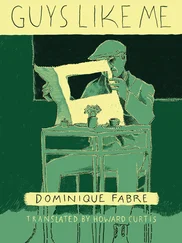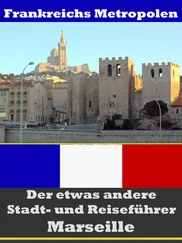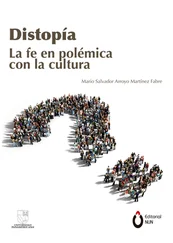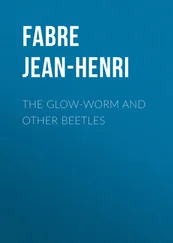Cédric Fabre - Marseille Noir
Здесь есть возможность читать онлайн «Cédric Fabre - Marseille Noir» весь текст электронной книги совершенно бесплатно (целиком полную версию без сокращений). В некоторых случаях можно слушать аудио, скачать через торрент в формате fb2 и присутствует краткое содержание. Год выпуска: 2015, Издательство: akashic books, Жанр: Крутой детектив, на английском языке. Описание произведения, (предисловие) а так же отзывы посетителей доступны на портале библиотеки ЛибКат.
- Название:Marseille Noir
- Автор:
- Издательство:akashic books
- Жанр:
- Год:2015
- ISBN:нет данных
- Рейтинг книги:5 / 5. Голосов: 1
-
Избранное:Добавить в избранное
- Отзывы:
-
Ваша оценка:
- 100
- 1
- 2
- 3
- 4
- 5
Marseille Noir: краткое содержание, описание и аннотация
Предлагаем к чтению аннотацию, описание, краткое содержание или предисловие (зависит от того, что написал сам автор книги «Marseille Noir»). Если вы не нашли необходимую информацию о книге — напишите в комментариях, мы постараемся отыскать её.
Marseille Noir — читать онлайн бесплатно полную книгу (весь текст) целиком
Ниже представлен текст книги, разбитый по страницам. Система сохранения места последней прочитанной страницы, позволяет с удобством читать онлайн бесплатно книгу «Marseille Noir», без необходимости каждый раз заново искать на чём Вы остановились. Поставьте закладку, и сможете в любой момент перейти на страницу, на которой закончили чтение.
Интервал:
Закладка:
Thus, approaching the city through the genre called “noir” seemed to make sense — even if this genre, supposing that it actually exists, encompasses different realities, since each author is free to define it from his or her own perspective. A number of the writers who agreed to contribute to Marseille Noir don’t write crime fiction or any other type of “genre fiction.” Some grew up outside of Marseille and have just settled in the Phocaean city; others were born here and then left for other horizons. They come from diverse cultures — and sometimes languages — but all of them participated in the construction of this fictional cartography of Marseille — or is it a monograph? — with their own imaginary visions. All have their own re-creations, or even their own distorted memories or selective amnesia. We had no intention, of course, of spotlighting some school of writing or literary movement, nor of speaking with only one voice, nor of coconstructing an exhaustive or realistic portrait of our city. Rather, our goal was to present different ways of seeing.
This anthology is neither a comprehensive survey nor a compilation, and still less an enumeration of the emblematic places of the city. An anti-guidebook? Maybe. If Marseille Noir does have any homogeneity, it’s mostly because the authors put Marseille at the heart of their stories, because the city here is omniscient, omnipresent, and recurrent — a character in its own right. Some stories resonate with each other and we marvel at the discovery that sometimes it is in the interstices, in invisible points of junction between two stories, that magic exists. for we’re betting that in literature, everything is a matter of secret, mysterious correspondences.
In this collection, we have retained crime fiction’s predilection for a literature rooted in a specific place, as well as its obsession with the power of the connection between the individual and his or her environment, between the individual and the community.
Some authors chose to infuse humor into their dark tales, as when Philippe Carrese, who began writing a series of crime novels about Marseille in the mid-’90s, depicts ordinary cagoles (sluts) and cacous (show-offs), eternal victims of themselves and of the city that made them. A comical tone is also found in Serge Scotto’s writing, as he relates the tribulations of a bohemian apprentice in the iconic neighborhood of la Plaine at the end of the ’80s, an island of punkness in a city which was then turning to rap.
At times the city seems to circle around the Vieux-Port, where fishermen have given way to yachtsmen, and narrow streets swarm with exhausted, bitter characters who can’t cope anymore, because behind the flashy façade, the world is an open-air garbage dump, as Pia Peterson shows us. François Beaune sets his story on the 49 bus, with exhilarating verve, where he presents a Marseille that can test one’s patience and lead to angry outbursts. Minna Sif, whose story takes place partly in Belsunce, the cosmopolitan heart of Marseille, describes a city woven like a net that imprisons its prey, a city of wandering and waiting that can feel like the last stop. In some stories, the city appears almost as a hopeless dead end for bad boys on the lam, like the characters of René Frégni and Emmanuel Loi, who, each in his own way, present stories of vengeance and gangland killings, the stuff local legends are made of. For Marseille loves these urban myths — especially if they’re rooted in cult places like Vélodrome Stadium where François Thomazeau sets his story, or Endoume, through which Christian Garcin walks us, with a pinch of nostalgia; or Le Panier, an underworld mecca, revisited here in an insolent, surprising way by Patrick Coulomb.
Salim Hatubou’s political police procedural, which stretches from a housing project in the North End to the far-off Comoros, is quite different from the usual stories of drug dealing. Besides, the dealer isn’t always the way you imagine him, as you see when you follow Rebecca Lighieri’s character in a theoretically harmless location, the zoo. And, moving away from the swarming heart of the city, we land in Le Frioul for an outing in the form of a macabre, grandiose farce penned by Marie Neuser.
Finally, this anthology is an homage to Marseille: “It’s a mess after my own heart,” as Cendrars said. For Marseille also cures us of our obsession to be in control of everything, to get results, to be showered with praise. Because here, where we know how to cultivate a certain sense of self-mockery, we hope we’ve learned at least one essential thing: we know the foreigner is above all oneself.
Cédric Fabre
Marseille, France
September 2015
PART I
Mythologies
The JOSETTEs Really LIKED ME
by CHRISTIAN GARCIN
Endoume
I never knew which one of Ange Malatesta’s four sisters was the craziest. I don’t know anything about the symptoms of dementia, psychosis, schizophrenia, or any other mental illnesses, so I certainly wouldn’t dare to diagnose them, but I do know they were all nuts. Besides, they took turns in a mental hospital, sometimes even together. They were interchangeable, and that probably didn’t do much for their mental stability. To begin with, their names were almost identical: Josiane, Josette, Jocelyne, and Josephine. People called them “the four Joes.” They were as alike as four peas in a pod — same height, slightly thin, kind of pretty too, wavy, almost curly dark hair, big black eyes, usually wearing the same flowery dresses all bought together at the same time — so actually, I never could determine who was the youngest and who the oldest. And yet I would see them almost every day on the little dead-end street where we lived, near rue d’Endoume, whenever they weren’t in a “special home,” as their mother called it. She had a strong taste for euphemisms.
Their mother was Madame Malatesta; I never knew her first name. She had bright red hair, sometimes even blue, which, in the Endoume of the sixties, was considered bizarre. She had given birth to them at closely spaced intervals, so that the eldest was only about three years older than the youngest.
Their father Claudio was a mason. He was rarely seen, and when he was, he would usually be wearing a sleeveless undershirt and a cap, with a cigarette between his lips, his hands in his pockets resting just below a slight paunch. I don’t think I ever heard the sound of his voice. I was afraid of him. Ange said that nobody at home was allowed to ask him questions or interrupt him when he talked. Rumor had it that he drank pretty heavily and beat his wife and kids. I had no trouble believing that he drank; I’d seen him stagger before climbing the stairs to their apartment. As for the rest, Ange never talked about it, so I think it was just neighborhood gossip.
I have no idea if there was gossip about my own father. If there was, it probably wasn’t very far from the truth, which was that he worked with the mob. That, however, nobody in the neighborhood was supposed to know: theoretically, everybody took him for what he claimed to be — an honest salesman of wine and spirits. Sure, he was a mobster, but a small-time mobster, someone who never threatened anyone. Or not very often — or, let’s say, not on a regular basis. Who in any case had never stolen, or killed anyone. He had connections to the Corsicans, who controlled the slot machines in the bars and cafés. He was a collector. Otherwise he was a very nice, sensitive, and generous man who loved his wife and son. I was an only child.
He was born into the mob, he’d always lived in it, and he saw no other way of earning a living. He would finally get out one day in 1970, feetfirst, a bullet in his belly and another in the liver after a drive-by shooting in a bar on boulevard des Dames. He had the bad luck of being there when it happened, although he was only doing his job — that is, collecting a payoff. Two young hoods on motorcycles fired wildly through the plate-glass window, killing the manager, who was actually their target, as well as two customers plus my father, who were not. But that’s another story.
Читать дальшеИнтервал:
Закладка:
Похожие книги на «Marseille Noir»
Представляем Вашему вниманию похожие книги на «Marseille Noir» списком для выбора. Мы отобрали схожую по названию и смыслу литературу в надежде предоставить читателям больше вариантов отыскать новые, интересные, ещё непрочитанные произведения.
Обсуждение, отзывы о книге «Marseille Noir» и просто собственные мнения читателей. Оставьте ваши комментарии, напишите, что Вы думаете о произведении, его смысле или главных героях. Укажите что конкретно понравилось, а что нет, и почему Вы так считаете.
